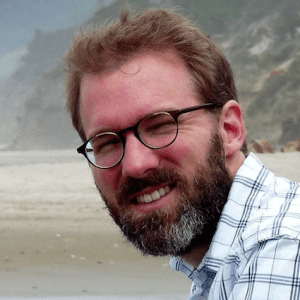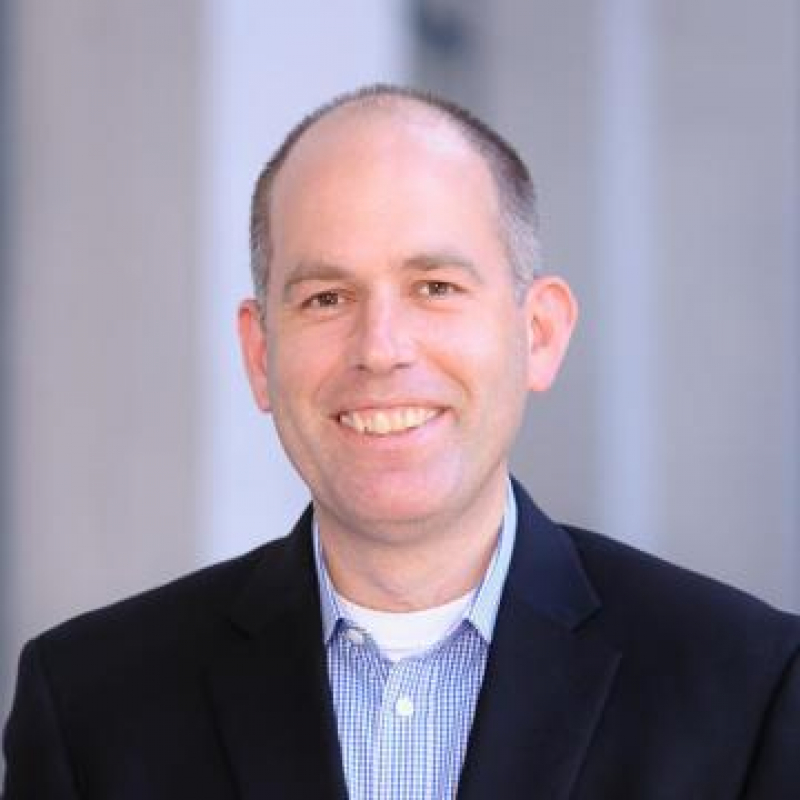The social cost of carbon—an estimate of the economic harm caused by each additional ton of carbon dioxide—allows policy makers to evaluate the economic consequences of emissions and make informed decisions about climate change. Join this discussion between Energy and Resources Group professor David Anthoff, Agricultural and Resources Economics professor Maximilian Auffhammer, and ERG PhD candidate Lisa Rennels to learn more about the most important number you’ve never heard of.
The Breakthroughs Magazine article on The Social Cost of Carbon can be read here.
If you have any questions about this event, you can email Kassie Darling, Director of Events and Special Programs, at kdarling@berkeley.edu.
Speakers:
 David Anthoff, Professor, Energy and Resources Group
David Anthoff, Professor, Energy and Resources Group
David Anthoff is an environmental economist who studies climate change and environmental policy. He co-develops the integrated assessment model FUND that is used widely in academic research and in policy analysis. His research has appeared in Nature, Science, the American Economic Review, Nature Climate Change, the Journal of the Association of Environmental and Resource Economists and other academic journals. He contributed a background research paper to the Stern Review and has advised numerous organizations (including US EPA, the German Bundesumweltamt and the Canadian National Round Table on the Environment and the Economy) on the economics of climate change. He holds a PhD (Dr. rer. pol.) in economics from the University of Hamburg (Germany) and the International Max Planck Research School on Earth System Modelling, a MSc in Environmental Change and Management from the University of Oxford (UK) and a M.Phil. in philosophy, logic and philosophy of science from Ludwig-Maximilians-Universität München (Munich, Germany).
 Maximilian Auffhammer, Professor, Agricultural and Resources Economics (Moderator)
Maximilian Auffhammer, Professor, Agricultural and Resources Economics (Moderator)
Maximilian Auffhammer is the George Pardee Jr. Professor of International Sustainable Development at UC Berkeley. Professor Auffhammer received his B.S. in environmental science from the University of Massachusetts at Amherst in 1996, a M.S. in environmental and resource economics at the same institution in 1998 and a Ph.D. in economics from UC San Diego in 2003. He joined the faculty at UC Berkeley in 2003. His research focuses on environmental and resource economics, energy economics and applied econometrics. He is a Research Associate at the National Bureau of Economic Research in the Energy and Environmental Economics group, a Humboldt Fellow, and a lead author for the Intergovernmental Panel on Climate Change (IPCC). Professor Auffhammer serves as Co-Editor of the Journal of the Association of Environmental and Resource Economists. His research has appeared in The American Economic Review, the Review of Economic Studies, The Review of Economics and Statistics, The Economic Journal, the Proceedings of the National Academies of Sciences, the Journal of Environmental Economics and Management, The Energy Journal and other academic journals. Professor Auffhammer is the recipient of the 2007 Cozzarelli Prize awarded by the National Academies of Sciences, the 2009 Campus Distinguished Teaching Award and the 2007 Sarlo Distinguished Mentoring Award.
 Lisa Rennels, PhD candidate, Energy and Resources Group
Lisa Rennels, PhD candidate, Energy and Resources Group
Lisa is a PhD candidate at the Energy and Resources Group and a MSc student in Computer Science with a focus on programming languages and software development. She is interested in using computer science to explore issues related to the economic impacts of climate change, and to support research and policy-making in this area. She currently works on software development of the Mimi package to support the construction and use of integrated assessment models, as well as uncertainty analysis and global sensitivity analysis. Through her MSc work she also hopes to pursuing a better understanding for how computer scientists can support climate research and policy makers. Lisa spent the three years previous to ERG working at an environmental consulting firm called where she leveraged data analysis, computer programming, and GIS to work on projects related to the economic affects of climate change, specifically those related to water resources, and assist policy-makers in planning paths forward. She has a B.A. from Dartmouth College in Environmental Studies, focused on environmental economics, and a Post-Baccalaureate Computer Science Minor from Tufts University.


